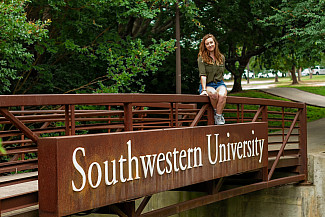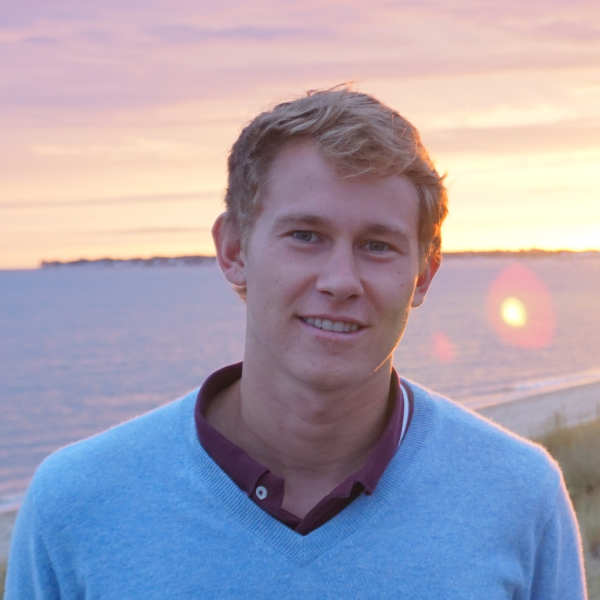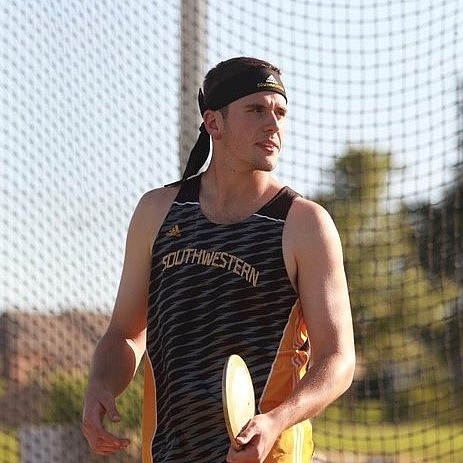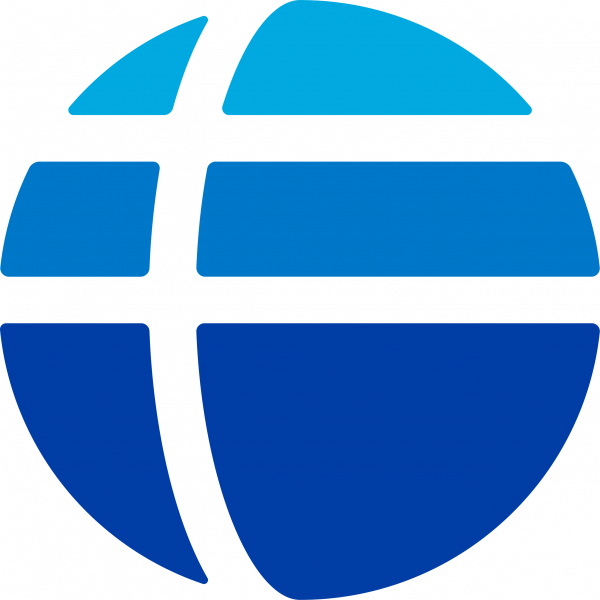News
Solving Earth’s Problems from Space
January 19, 2021
January 19, 2021
Open gallery

2020 may have been a difficult year for many, but for German and physics major Claire Harding ’20, everything seems to be coming up roses—or perhaps they were irises, considering that the recent Southwestern University graduate became America’s youngest registered iris judge at the tender age of 14. Last January, she was named a Fulbright Finalist for the flagship international educational exchange program’s English Teaching Assistant (ETA) Program, a prestigious scholarship that will allow her to live and work in Germany, integrating hands-on science education with lessons in American culture and English language. Then, in the months leading up to graduation from SU, she landed a coveted internship with the National Aeronautics and Space Administration (NASA) Glenn Research Center, working virtually from northern California on a project titled “Using Virtual Testbed and Robotic Arms for Radio Frequency System Communications.”
German and physics, gardening and NASA—they may seem to be fairly disparate interests and career moves. However, for Harding, these opportunities coalesce around her dedication to global science and the environment. “Environmental issues are just constantly on my mind, … and I really want to be an astronaut,” she reveals. “I would love to do both: to find solutions for environmental problems here by going to space and doing research. That would be the dream and end goal.”
“I would love to do both: to find solutions for environmental problems here by going to space and doing research. That would be the dream and end goal.”
Finding opportunities
When she moves to Germany to begin her teaching assignment for the Fulbright ETA Program, Harding will be returning to her birthplace—her father, then serving in the U.S. Air Force, was stationed there for a year after she was born. Her family has moved 14 times since then, and Harding attended three different high schools: one in Texas, another in Virginia, and the third in Louisiana. Being a military brat teaches you to adapt to new situations and build new friendships, so Harding is able to weather change with agility, finding or creating new opportunities for herself along the way.
For example, while living with her grandparents during the springs and summers on their small farm in Weatherford, Texas, she would often end up accompanying them to meetings and garden shows hosted by the American Iris Society. Although she was only nine years old at the time, her grandparents decided that since Harding was going to be attending such events with them anyway, she might as well begin the training to become an accredited iris judge. It’s a process that takes five years, but Harding was undeterred by either the long-term training requirements or her relative youth. She earned her certification at 14, becoming the youngest registered judge in the U.S. “I had the opportunity about a year ago to be a senior judge on a panel even though [the other judges] were all 20 or 30 years older than me,” she laughs. Harding may not have known it then, but learning how to award prizes for plants based on such characteristics as their vigor, their production of multiple flowers, their distinctiveness, and their appearance expanded Harding’s knowledge and love for gardening and planted the seeds, so to speak, of her passion for protecting the environment.
Another unexpected opportunity that would shape her academic and professional career arose when Harding was considering colleges. She thought she might end up at the university where her mother worked in Shreveport, but when her father was stationed in Hawaii, she understandably set her sights on attending college in the islands. However, after her parents encouraged her to visit Southwestern, she was charmed by the university’s “gorgeous campus,” and she received a generous scholarship and financial-aid package that would make it affordable. Most importantly, SU “had everything [she] wanted” in terms of both academics and athletics: Southwestern’s liberal-arts curriculum was the right fit, and she learned from a chance encounter in the admissions office that she could continue playing lacrosse at SU, a sport she had been playing the previous two years. “That’s pretty much what sold me: OK, I can be a college athlete; of course I want to go there!” she says.
Harding became a Pirate wishing she could major in physics, but, she shares, “I’m terrible at math, so I came in thinking I’d be an international studies and political science major.” However, she realized early on that she missed science, so her advisor during first-year orientation, Associate Professor of German Erika Berroth, encouraged her to consider a different route that would better align with her interests. She pointed out that given Harding’s fascination with her birth country and its culture as well as her proficiency in the language (gained through high-school classes), she could easily major in German. She also encouraged Harding to confront her math phobia by enrolling in Calculus I with the goal of beginning her requirements for a second major in physics during her sophomore year.
Yet again, Harding had found opportunity against expectation, and the payoff included “incredible” courses in her two majors, such as Observing the Universe, an astronomy class, as well as “awesome” electives, such as sociology and a
“Dr. Berroth pushed me to do everything. She has been my cheerleader these entire four years. She made me believe in myself,” Harding says affectionately. “I couldn’t have done any of this without her. She’s amazing.”
A passion for the environment
Harding thrived in her academic coursework and cocurricular activities, but perhaps some of the most formative experiences she enjoyed at SU were her two Summer Collaborative Opportunities and Experiences (SCOPE) and five—yes, that’s right, five—King Creativity projects. Through these immersive research experiences, Harding collaborated with peers under the guidance of Professor of Physics Steve Alexander to experiment with engineering and design, such as a finger-controlled wheelchair. She also designed and created a conveyor belt that uses artificial intelligence (AI) to sort through recycled materials to improve the efficacy of single-stream recycling. Such technology would also decrease the danger to workers: plastic bags must be recycled through a different process from harder plastics, but because people often forget to separate out those bags from their regular curbside recycling, maintenance workers, technicians, and sorters have to climb into machinery to disentangle those soft plastics from the gears; Harding’s invention would decrease or even eliminate that hazard.
This inspired AI-enhanced recycling project became the foundation for Harding’s physics capstone. “I’m very passionate about the environment, and I feel like everybody should be, and so almost all of my projects were focused on making solutions for things. It’s always been about finding solutions for things,” she explains.
Harding says she appreciates her multiple research projects because they required her to build on her classroom learning. For example, she had no background in AI when she began brainstorming about how to improve recycling technology, so her SCOPE, King Creativity, and capstone projects were devoted to intensively researching and experimenting with machine learning. She also had to teach herself computer programming languages, which, it turns out, are highly sought after by employers. “If I hadn’t done King Creativity and SCOPE, I wouldn’t have had that knowledge, and almost every internship that I’ve applied to has asked, ‘What programming skills do you have?’ and now I can say, ‘Python and C++,’” Harding says. “It’s been really important in expanding my breadth of knowledge in my field.” But she is also grateful that she was empowered to collaborate with friends from various majors to design interdisciplinary projects that might have a positive impact on the environment—Bottorff and Alexander have encouraged her to think about publishing and even patenting her research. “King Creativity gives you such an opportunity to be creative,” she says with gratitude. “It makes you think outside of the box and gives you resources and tools… . It was just a huge everything-builder.”
Ad astra
Harding’s transformative undergraduate research experiences provided her with the training and background that made her an ideal candidate for the internship at NASA. Locating such opportunities was time consuming, but Harding did a deep dive and eventually found multiple possibilities for summer 2020. Then, as her application advanced for one paid internship, she worried that her lack of coursework in computer science or her struggles with mathematics might ruin her chances. However, she aced the phone interview in February, and just days later, she was offered the position at the Glenn Research Center, in Cleveland, Ohio.
Harding was ecstatic—if not a bit incredulous at first. She says she “never thought in a million years” that she’d earn a spot with her dream employer. “I was like, ‘Oh, I’ll be a janitor at NASA just to work there!’” she laughs. “After I received the news that I was going to be an intern at Glenn, I couldn’t believe it, and I kept waiting for a call to say they mixed me up with someone else.” But for 14 extraordinary weeks, she got to work remotely with the Space Communications and Navigation Intern Project, researching whether an antenna on a lunar orbiting module that becomes locked in a position facing the moon’s surface can still be used to communicate and whether the problems with antenna beam patterns that are caused by the moon’s environment could be resolved using a phased array, a computer-controlled arrangement of antennae. The original project was 10 weeks long, but Harding and her colleagues were able to expand on their project and create something that the NASA team will be able to use for years to come.
For a hands-on person like Harding, it was a joy working with hardware and extending her Southwestern Experience of problem-solving. “Throughout my time at [the] university, I worked on projects outside of class that were ways of fixing problems using my science and liberal-arts background. I love Glenn because they are working on solutions to problems, too, just in space!”
Having the opportunity to study space communication systems, robotic arms, satellite hardware and software, and programming only cemented Harding’s ambitions of becoming an astronaut—a goal that may seem lofty but is, with hard work, certainly within reach. She believes that other students should similarly ignore the naysayers and pursue what they love. “If you really have a passion for something, find people who will support you,” she advises. “Southwestern has all those people. And really go after everything, even if it feels like a really far reach. The worst thing someone can say is ‘no.’ You don’t know until you ask for it that it’s going to work out… . I had to go out of my way and network and go for it, and that’s what you have to do if you want to get what you want. I’m not going to be the best physicist ever,” she laughs, “but it’s something I love and I have a passion for it, and I think it’s more important to have the passion to keep going and doing it. Otherwise, what’s the point of doing it?”
Glaub an dich
When Harding completed her NASA internship in September, the plan was to go directly to Germany, where she would spend 10 to 12 months teaching in a K–12 school with the Fulbright ETA Program. Her hope was to be placed with a school whose administrators found her proposed interdisciplinary teaching approach appealing: to engage children in English language learning and lessons in U.S. culture by cultivating a school garden, introducing plants that have literary or cultural significance in the U.S., practicing the scientific method through an American-style science fair, and writing scientific grant proposals.
However, COVID-19 postponed Harding’s trip to Germany from September 2020 to September 2021. Ever able to create opportunities from unexpected circumstances, she is currently working as an administrative assistant at her
uncle’s plumbing company in California, earning her pilot’s license and independently studying aerospace science in her spare time. Still, she is excited by both the prospect of incorporating interactive, hands-on learning in the classroom and immersing herself in German culture when she goes abroad later this fall. She especially looks forward to the cuisine—”the food is a big part of it!” she says—as well as to the culture and to the people; when she studied abroad last year, she spent a lot of her time in Bavaria, where “the people were just wonderful. They were so nice and supportive of my learning of the language, and it was just really fun to be there. I love Germany. It’s an awesome place.”
Her only qualm? The cold weather. “But we’ll see,” she offers with a mirthful smile. “It’ll be an adjustment.”
After her stint in the ETA program, Harding hopes to pursue a doctorate in aerospace engineering; she’s spent this past fall applying to various programs. With her Ph.D. in hand, she would love to then return to NASA to fulfill her dreams of solving environmental problems as an astronaut. Harding may be a passionate gardener who enjoys having her hands in the dirt and has a heart that’s committed to saving the Earth, but there’s no doubt that this young scientist’s future lies somewhere among the stars.


















